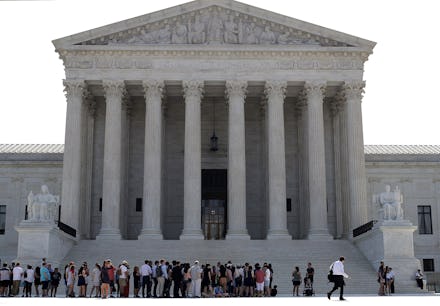Supreme Court says the government needs a warrant to search your cell phone location data

The Supreme Court on Friday ruled the government needs a warrant to obtain your personal cell phone location data — a pro-criminal-defendant decision that strengthens Fourth Amendment protections against “unreasonable searches and seizures.”
The court ruled 5-4 that a precedent known as the third-party records doctrine, which says the Fourth Amendment does not apply to information individuals voluntarily share with a third party, is not applicable to personal cell phone location data.
In the decision written by Chief Justice John Roberts and joined by the court’s four liberal justices, the Supreme Court said cell phone location data “is not truly ‘shared’ as the term is normally understood.”
“We decline to grant the state unrestricted access to a wireless carrier’s database of physical location information,” Roberts wrote in the majority opinion. “In light of the deeply revealing nature of [personal cell phone location data], its depth, breadth and comprehensive reach, and the inescapable and automatic nature of its collection, the fact that such information is gathered by a third party does not make it any less deserving of Fourth Amendment protection.”
Sen. Ron Wyden (D-Ore.) called the decision a “big win for privacy.”
This was one of the final major decisions the Supreme Court will announce this term. The court, however, has yet to release opinions on major cases involving public-sector unions, racial gerrymandering and President Donald Trump’s travel ban.
The Supreme Court will announce additional decisions beginning at 10 a.m. Eastern on Monday.